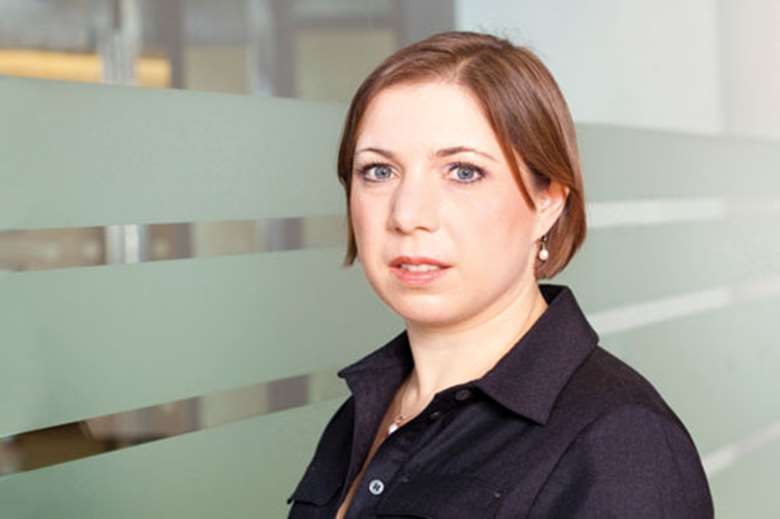Interview: Sarah Teather, minister for children and families
Janaki Mahadevan
Monday, January 23, 2012
Sarah Teather is apologising that her rather functional Westminster office is not as homely as those of fellow ministers. "You should see some of them, especially the men's - have you seen Tim Loughton's?" she giggles. "They like to nest. But I've not been very good at nesting here."

The pursuit of such cosiness is unlikely to become Teather's top priority. Sitting composed and aware she has just a 30-minute window between meetings, she returns to more serious matters.
Since finding herself in the entirely unexpected role of minister of state for children and families 20 months ago - becoming the highest-ranking Liberal Democrat woman in government - Teather has had plenty on her plate. She has instigated reviews into the Early Years Foundation Stage, the Office of the Children's Commissioner for England and qualifications for early years practitioners. Furthermore, she has led on changes to the free entitlement to early education for threeand four-year-olds and disadvantaged two-year-olds, and the government's green paper on special educational needs.
Whether local services actually possess the financial and structural levers to see these reforms through is a different matter. "You hear a mixed picture, but for anyone working in the sector, it is not an easy time," she admits. "You cannot do everything you want at the moment, but the key to most of the work in my role is that a lot of it is long-term thinking.
"We are setting the scene now for things that we will reap the benefits of in 10 to 15 years' time; particularly in the work across my portfolio on the foundation years."
Cultural shift towards localism
The focus on the foundation years, from birth to five, might indeed yield results beyond this parliament. But "long-term thinking" does not address the very immediate threat of cuts and, in many cases, service closures, faced by providers and councils.
Unsurprisingly, Teather sees this as an opportunity to emphasise the cultural shift towards localism promoted by the coalition. "When there is less money, it is even more important that you are less prescriptive from government because only people close to where services are being delivered can understand what the immediate priorities are," she says. "People are trying to get used to a different way of working because the previous government ran everything so tightly from the centre and, for many, they were accustomed to hearing new initiatives all the time and pots of money signalling those initiatives.
"Uneasiness will settle as people realise that we want them to take the initiative and free people to be innovative about their approach, which is why we have to step back."
But won't localism produce a postcode lottery of services for children and families?
"A minister's role is to set priorities from the centre, set the legislative framework and fight for the money, giving some clear direction of what we want local authorities to do," Teather says, exposing the tension between local determination and central leadership.
She cites the example of the imminent statutory requirement on local authorities to provide free childcare hours for the most disadvantaged two-year-olds as one such compulsion. "The free entitlement is going to become law in 2013 and that is why I have been trying to focus local authorities' minds on increasing capacity," she insists. "They really are going to have to spend that money on early years places. We want local authorities to have a race to the top and not to the bottom so that they start to think about how they can really provide well for children and families in their area, rather than simply doing the bare minimum."
Teather is unwavering in her assertion that all local authorities want to, and are able to, meet this obligation by April 2013 and appears unwilling to hear complaints about dense urban authorities struggling to find the space to expand their childcare places by the numbers the government is demanding. Manchester alone is expected to provide 2,300 places for two-year-olds by 2013 and Birmingham 4,700.
"Tower Hamlets has been working with us on some pilots and they have substantially increased their capacity," she says. "There can't be many places in London that are tighter for space than Tower Hamlets."
Working for fairness
Writing for CYP Now in June 2010, just after taking up the post of children's minister, Teather said her experiences of meeting some of the most vulnerable residents in her London constituency in Brent helped motivate her to "work for fairness" as a government minister.
She maintains that the central aim for her and fellow Liberal Democrats in government is to redress inequality. "If there is an overarching narrative for the government, it is about life chances and social mobility," she says. "That is a reason why [Deputy Prime Minister] Nick Clegg has made that such a priority and, certainly for Liberal Democrats, that is why we are in government."
She has been instructed by David Cameron to hold all ministerial colleagues to account on how their policy decisions affect families. "In my role as children's and families minister, I take a wide brief, and this is something the Prime Minister has asked me to do, to look across the piece at families policy and to look at different policies in other government departments that affect families," she explains. "So I consider it within my responsibility to hold other departments to account if I consider the impact of policies is not fulfilling the government's wider agenda to improve development and life chances for children and improve the quality of lives for families."
Teather has been outspoken about her concerns over proposed welfare reforms, most notably over the benefits cap. But it is not yet clear how much influence she will have over ministers across government departments, particularly as the welfare reforms continue their path through parliament. Indeed, despite fierce opposition in the House of Lords to some of the more controversial measures, Tory ministers have pledged to plough ahead with changes that charities warn could severely disadvantage certain families, including those with disabled children.
"Particularly on the Welfare Reform Bill, the government has not yet got the detail right and I have been fairly proactive in private on that issue," she says. "I will continue to work inside government to ensure that we are getting the detail right. There is a lot that is very good in the bill - the principle of universal credit and the way in which that will help to lift workless families out of poverty is long overdue."
Within her department, one of the biggest challenges Teather has faced has been planning the biggest shake-up of special educational needs (SEN) for three decades. She has received support for her efforts to engage with the sector over the green paper reforms, which call for a single assessment to bring together education, health and social care onto a single plan for children. Legislation to give parents the option of personalised funding, with trained key workers helping them to navigate different services, has also been applauded.
But senior figures - including Association of Directors of Children's Services president Matt Dunkley and former SEN inquiry chair Brian Lamb - have warned that relentless cuts are stripping councils of the resources to provide sufficient multi-agency care for children, let alone a sufficient choice of services for parents.
Teather herself has admitted the task ahead is fraught with difficulties, but says she is no less determined to see the policy through. "The SEN pathfinders are there, attempting to think through how local authorities can do this with the resources that they have and develop new relationships with the health sector as it changes its structure," she says.
"In February, we will be responding to the consultation on the SEN green paper. It has been a huge piece of work. We are into an implementation phase and we will be legislating before the end of the parliament to put into statute some of those rights that we have said we want to offer to families."
But in the months ahead, the sector will want to see more than an unwavering optimism from the children's minister. Aspirations have to be matched with the means to achieve them, and Teather has a tough job ahead to help bridge that gap.
MINISTERIAL CV
- Sarah Teather was the youngest MP in Britain when first elected to parliament in 2003, representing the constituency of Brent East
- After being elected to the newly created constituency of Brent Central in the May 2010 general election, she was appointed as minister for children and families in the coalition government
- Teather studied natural sciences at St John's College, Cambridge, and subsequently took up posts in public policy including a spell at the Royal Society advising government on scientific aspects of public policy
- Teather has learned basic Hindi and Gujarati, spoken by many of the people in her constituency





